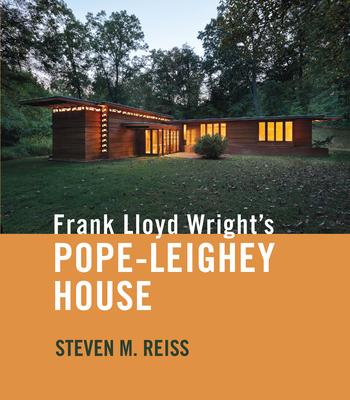Frank Lloyd Wright designed and realized over 500 buildings between 1886 and 1959 for a wide range of clients. In Frank Lloyd Wright's Pope-Leighey House, architect Steven M. Reiss presents the updated and detailed story of one of Wright's few Virginia commissions. Designed and built for Loren and Charlotte Pope and later purchased by Marjorie and Robert Leighey, the Pope-Leighey House stands as a stunning example of an innovative form of shelter--which Wright called Usonian--for families beset by the Great Depression. Here, and elsewhere, Wright offered a unique and unprecedented approach for homes that would be small yet architecturally significant, carefully sited, and constructed of readily available local materials. He believed that anyone with an acre of land should have the opportunity to own a Usonian home.
Set in Northern Virginia, the Pope-Leighey House has an unusual history in that it has been moved twice, first to the grounds of the National Trust's Woodlawn to rescue it from the path of Route 66 in Falls Church, then to re-site it to better correspond to its original orientation. Wright's mission was to remind us that "we need to see life in simpler terms." In this amply illustrated book, Reiss echoes Wright's reminder that small, carefully built structures should be the starting point of sustainable and environmentally responsible house design.
